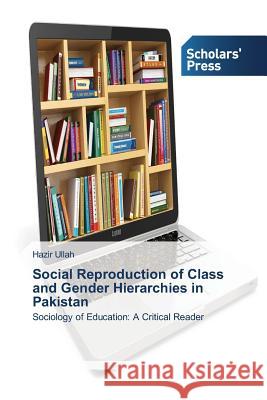Social Reproduction of Class and Gender Hierarchies in Pakistan » książka
Social Reproduction of Class and Gender Hierarchies in Pakistan
ISBN-13: 9783639860177 / Angielski / Miękka / 2015 / 352 str.
Dr. Hazir Ullah's book offers compelling insights into the reproduction of class and gender hierarchies through education in Pakistan. This book engages key concepts of cultural capital, habitus, field, ideology, hegemonic masculinity and hegemonic curriculum from the works of Bourdieu, Apple, Foucault, Connell, and Butler to the understanding of class and gender hierarchies in contemporary Pakistani society. This book explains how different educational systems have been established to maintain the existing class hierarchies, creating working and middle class children as the 'Other' of the elite and professional middle classes' children. It also explicates how textbooks are ideologically invested and contribute to reproduction of gender hierarchies, creating girls/women as 'Other' of boys/men and essentializing women across space and time. This book argues for equality of opportunity in education through uniform education for all classes and the use of school textbooks as active and generative sites for creating gender and class equality. This book will be of particular interest to students of sociology, anthropology, gender studies, education and curriculum studies.
Dr. Hazir Ullahs book offers compelling insights into the reproduction of class and gender hierarchies through education in Pakistan. This book engages key concepts of cultural capital, habitus, field, ideology, hegemonic masculinity and hegemonic curriculum from the works of Bourdieu, Apple, Foucault, Connell, and Butler to the understanding of class and gender hierarchies in contemporary Pakistani society. This book explains how different educational systems have been established to maintain the existing class hierarchies, creating working and middle class children as the Other of the elite and professional middle classes children. It also explicates how textbooks are ideologically invested and contribute to reproduction of gender hierarchies, creating girls/women as Other of boys/men and essentializing women across space and time. This book argues for equality of opportunity in education through uniform education for all classes and the use of school textbooks as active and generative sites for creating gender and class equality. This book will be of particular interest to students of sociology, anthropology, gender studies, education and curriculum studies.











